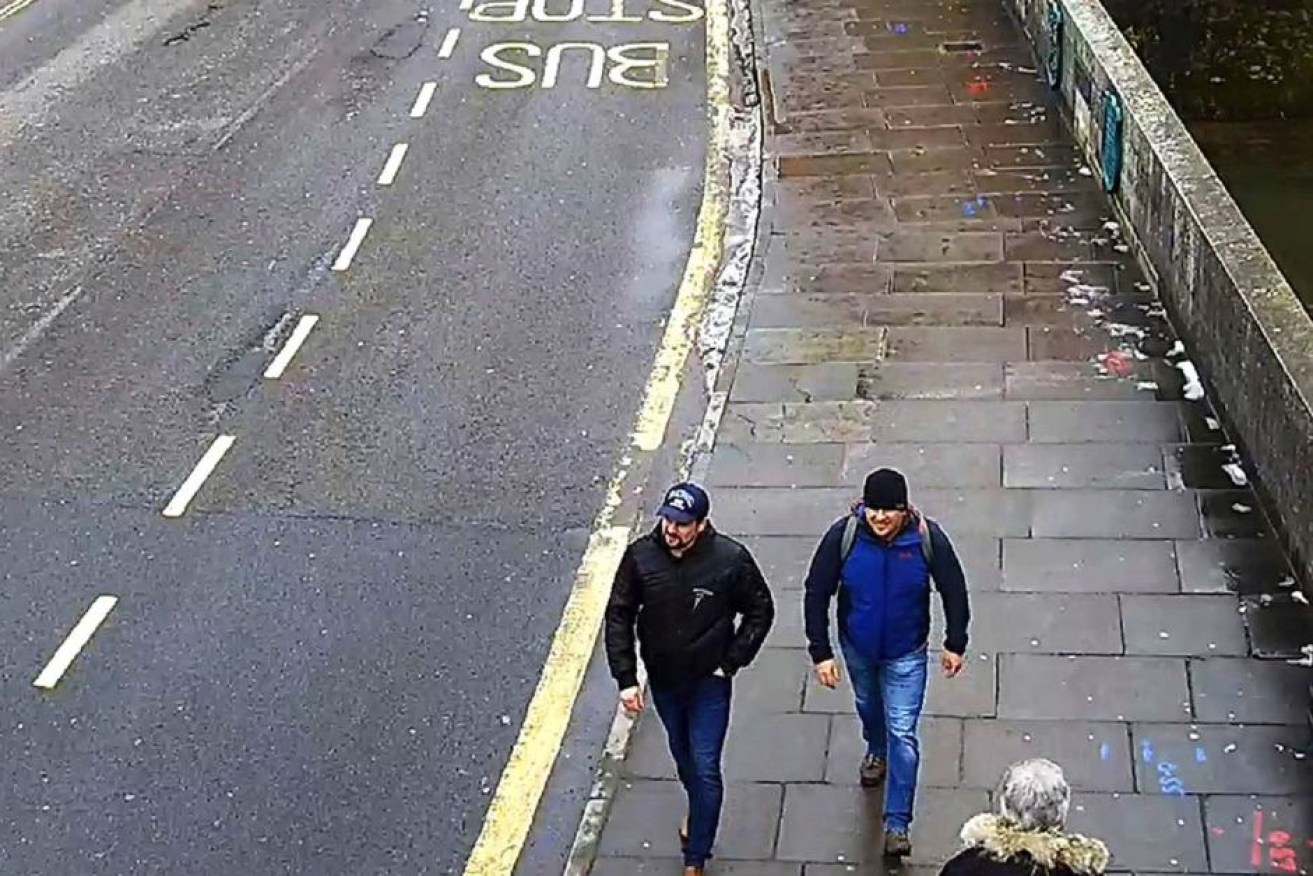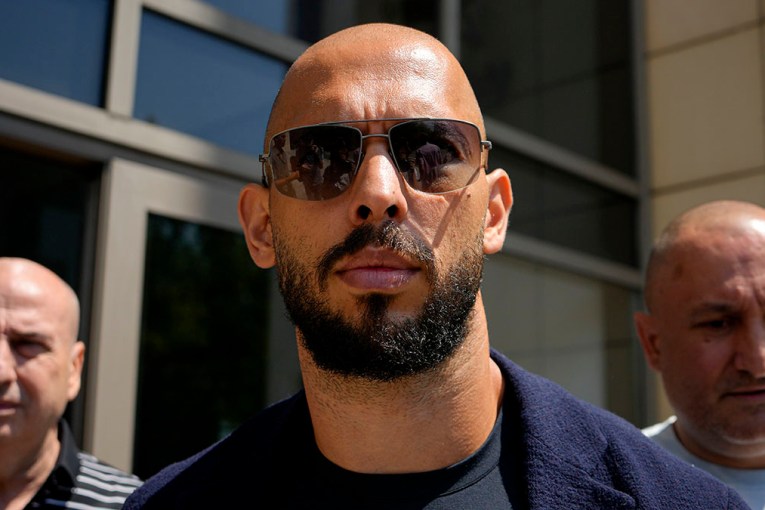Two Russian nationals charged over ex-spy poisoning


Police say the Russian suspects spent two days in Britain, flying out hours after the Skripals were found unconscious. Photo: Metropolitan Police
Two alleged Russian intelligence agents have been charged over the attempted murder of former Russian spy Sergei Skripal and his daughter Yulia.
British police on Wednesday night revealed images of the two men, Alexander Petrov and Ruslan Boshirov, who are thought to be Moscow military intelligence officers acting on orders from high up in the Russian state.
Authorities said the men had flown to Britain for a weekend to kill the former spy with Novichok, a military-grade nerve agent.
Mr Skripal, 66, and his daughter Yulia, 33, were poisoned with the nerve agent in March, while a police officer who attended the scene fell ill in the case.
The pair were found unconscious on a public bench in the southern English city of Salisbury on March 4.
Police also linked the attack to a woman who later died in a separate Novichok poisoning in June, after her partner found a counterfeit perfume bottle which police believe had been used to smuggle the nerve agent into Britain.

Sergei Skripl and daughter Yulia endured a long road to recovery. Photo: AAP
Prime Minister Theresa May said the UK government had concluded they were officers in Russia’s military intelligence service, GRU.
“The GRU is a highly disciplined organisation with a well-established chain of command, so this was not a rogue operation,” Ms May told parliament.
“It was almost certainly also approved outside the GRU at a senior level of the Russian state.”
She condemned it as a “despicable attack” and promised “the full range of tools from across our national security apparatus” would be used to “counter the threat” caused by Russia.
“We must now step up our collective efforts specifically against the GRU,” she said.
Russia’s London embassy responded to Ms May’s statement, calling on the British government to “give up politicised public accusations”.
Police released security camera images of the two suspects and outlined a three-day mission that took them from Moscow to London to Salisbury, where they sprayed poison on Skripal’s door before flying back to Moscow hours later.
Russia’s foreign ministry said the names given by Britain did not mean anything to Moscow, which has repeatedly denied any involvement in the attack.
“We have heard or seen two names, these names mean nothing to me personally,” Kremlin aide Yuri Ushakov told reporters in Moscow.
“I don’t understand why this was done and what sort of signal the British side is sending.”

An image released by the Metropolitan Police shows the men charged over the attack. Photo: Metropolitan Police
Britain and dozens of other countries have kicked out scores of Russian diplomats over the incident, and Moscow has responded tit-for-tat with an identical number of expulsions.
The affair has worsened Russian relations with the West, already under strain over Ukraine, Syria and other issues.
The “remarkably sophisticated” attack appeared to be a clear assassination attempt, said Neil Basu, head of UK counter terrorism policing. He described an investigation which involved 250 detectives and analysis of some 11,000 hours of video.
According to police, the suspects, both around 40 years old, flew to London from Moscow on March 2.
They spent two nights in an east London hotel, making two day trips to Salisbury, the first for reconnaissance, the second to kill Skripal. They flew out on March 4, hours after the Skripals were found unconscious.
Security cameras filmed the suspects near Skripal’s house, and traces of Novichok were found in their London hotel room.
The Russians are charged with conspiracy to murder Sergei Skripal and with the attempted murder of Skripal, his daughter and police officer Nick Bailey. They are also charged with illegal use and possession of a chemical weapon.
A European arrest warrant has been issued for them, but prosecutors said Britain would not ask Moscow to extradite Russian citizens because Russia’s constitution forbids it.
-with AAP








